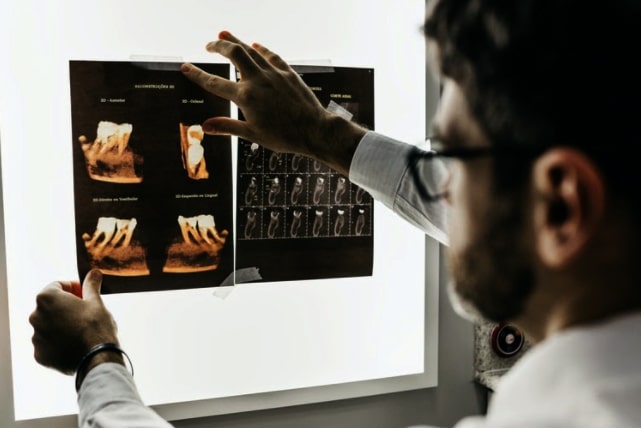To serve you better, we’ve collected the most frequently asked questions regarding wisdom teeth. In reading this, you’d be supplied we’d everything you’d ever need when it comes to dealing with it. Read on and learn
Why do we have wisdom teeth?
We have wisdom teeth because they are our third set of molars that grow belatedly. They are meant to help us grind food down.
When do wisdom teeth emerge?
They usually emerge when a person reaches the age of 18 to 25. Some take longer while others don’t emerge at all.
What are the signs that your wisdom teeth are coming in?
Wisdom teeth will be visible when they emerge. Those that don’t emerge fully become impacted. The following are signs that your wisdom teeth did not emerge properly:
- Bleeding or tender gums
- Swollen gums
- Red gums
- Jaw discomfort
- Jaw pain
- Bad breath
- Unpleasant lingering taste in the mouth
- Difficulty in opening your mouth
- Difficulty in eating
- Headaches
If you’ve been experiencing any of the following symptoms, please do visit your dentist immediately.
What will happen to you if you won’t get your wisdom teeth removed?
You will be prone to bacterial infection if you won’t have your wisdom teeth removed. Your teeth can be overcrowded and your wisdom teeth can even erupt sideways.
What are the effects of an infected wisdom tooth?
Bacteria will continue to grow in such an area if not treated immediately. You will experience severe pain from bacterial infection.
How do dentists remove wisdom teeth?
Your dentist may or may not recommend that removal of your wisdom tooth after the proper dental x-ray. If removal is advised, surgical extraction will be necessary. A wisdom tooth that has emerged is easier to remove.
If your wisdom tooth has yet to emerge, your gum will be incised to have access to it. If extraction becomes hard, it will need to be divided into smaller pieces for complete removal. Upon complete extraction, your dentist will stitch back the area if an incision was done. Gauze will be applied in the area to prevent bleeding and boost blood clot formation.
Will they give me anesthesia if I have my wisdom teeth removed?
Yes, you will be given local anesthesia for the numbing of the affected tooth and surrounding area. You will not feel any pain at all. Your dentist may also give you nitrous oxide gas to make you feel at ease and relaxed. You can also be put to sleep via an intravenous line if the gravity of the surgical extraction will require it.
Will my insurance cover it?
It will depend on your insurance provider and insurance plan. To be sure, it’s best to contact your insurance provider. Most insurance plans only cover general treatments like minor fillings.
How much will it cost me to have my wisdom teeth removed?
Removal of your 4 wisdom teeth will cost you an average of $600. It will be priced lesser or higher depending on the time it took for your dentist to finish the extractions. Extractions that only require local anesthesia are priced lower.
What are the risks I should be aware of if I’d have my wisdom teeth removed?
Risks are very rare in such extractions. However, one may develop a bacterial infection and have
Will it be painful?
No. Given that you will be given local anesthesia, you will feel no pain at all. The only thing that you will feel is the pressure that your dentist will apply during the extraction. It will be a bit uncomfortable for you after the operation but such a feeling is normal. You will also experience swelling and bleeding which is normal for everyone recovering from such surgery. You will be given pain relievers to help you deal with the pain that you may feel right after the operation.
How to prepare for wisdom teeth removal?
For a smooth extraction experience, do take note of the following preparations:
- Have someone drive you home after the operation.
- Don’t eat or drink before your scheduled surgery.
- Aim to arrive earlier than your booked schedule to have time to discuss your concerns and questions with your dentist.
- Dedicate time to discuss your options for anesthesia with your dentist.
- Prepare cold packs at home to alleviate swelling and pain.
- Schedule time off from work to give yourself the time to fully recover.
How to care for wisdom teeth holes?
Rinse your mouth with saltwater. Prepare one by stirring 1/4 teaspoon of salt on a cup of warm water.
On your first day after the operation, rinse your mouth without swishing saltwater or spitting it out. What you should do is move your head gently from side to side instead. When done, just open your mouth to let out the rinse. Don’t spit it out as your mouth does not need that kind of pressure. Ever be gentle during rinsing.
Avoid smoking and eating hard foods. You should also not use straws as any unnecessary suction may reopen your wound.
Can I use mouthwash after wisdom teeth removal?
No. It’s best not to use one within the first 24 hours after the operation as it can be too strong. Discuss this option with your dentist if you prefer to do it.
How long will it take for my dentist to remove my wisdom teeth?
It will take your dentist at least an hour and a half.
When do I need to consult my dentist for my wisdom tooth concerns?
You need to consult your dentist if you’ve been feeling any of the symptoms mentioned above.
It is always advisable to speak to the leading dentist in Joondalup for further information and to have any questions you have answered.

